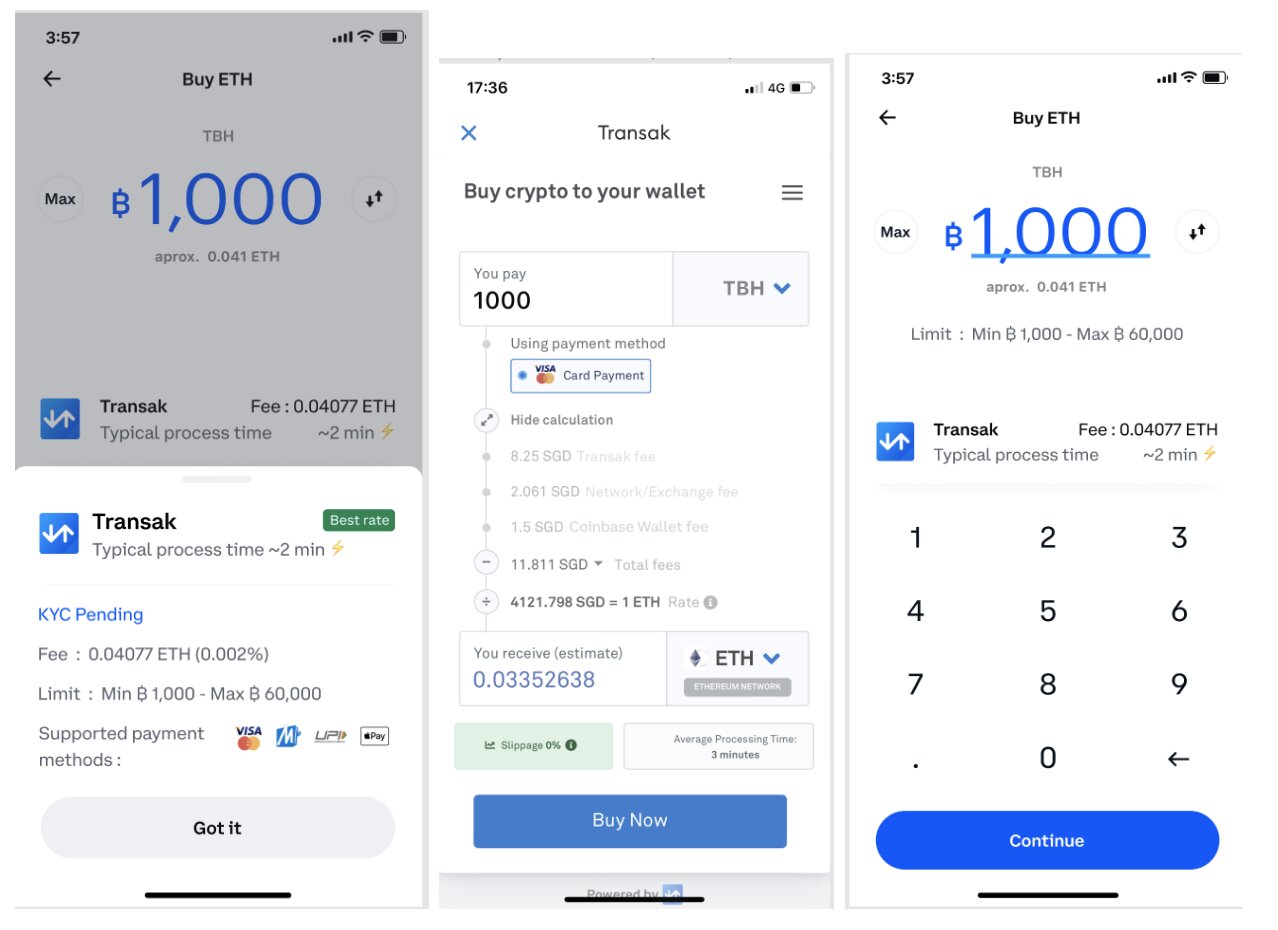Introduction
Welcome to the exciting world of cryptocurrencies! As more and more people are diving into the realm of digital currencies, it’s essential to understand the differences between a cryptocurrency exchange and a cryptocurrency wallet. While both serve integral roles in the cryptocurrency ecosystem, they function in distinct ways, catering to different needs and purposes.
A cryptocurrency exchange is essentially a digital marketplace where users can buy, sell, and trade various cryptocurrencies. It acts as an intermediary, connecting buyers and sellers, and facilitates transactions by matching orders. On the other hand, a cryptocurrency wallet is a secure digital wallet that allows users to store, manage, and interact with their cryptocurrencies. It serves as a gateway to access and control digital assets.
In this article, we’ll explore the differences between cryptocurrency exchanges and wallets, how they work, and the security measures they implement. We’ll also delve into the benefits of using each and help you understand which option aligns better with your needs and goals.
It’s important to note that the cryptocurrency landscape is highly volatile, and new developments may impact the functionalities and offerings of exchanges and wallets. However, this article aims to provide you with a general understanding of these concepts to help you navigate the exciting world of cryptocurrencies more effectively.
So, let’s dive in and uncover the mysteries behind cryptocurrency exchanges and wallets!
What is a Cryptocurrency Exchange?
A cryptocurrency exchange is a digital platform that allows users to buy, sell, and trade various cryptocurrencies. It serves as an intermediary, connecting buyers and sellers, and facilitates transactions by matching orders.
At its core, a cryptocurrency exchange acts as a marketplace, similar to a stock exchange, where users can browse through different cryptocurrencies and execute trades based on their preferences. These exchanges offer a wide range of cryptocurrencies, including popular ones like Bitcoin, Ethereum, and Litecoin, as well as lesser-known altcoins that have entered the market.
To start using a cryptocurrency exchange, users typically need to create an account and complete a registration process. This usually involves providing personal information, verifying one’s identity, and adhering to any applicable Know Your Customer (KYC) and Anti-Money Laundering (AML) regulations.
Once the account is set up, users can deposit funds into their exchange wallet, which can be in the form of traditional currencies or other cryptocurrencies. These funds act as the user’s trading capital, allowing them to participate in the buying and selling of cryptocurrencies.
When it comes to trading, cryptocurrency exchanges offer different types of orders, such as market orders, limit orders, and stop orders. Market orders are executed immediately at the prevailing market price, while limit orders allow users to set a specific price at which they want to buy or sell a cryptocurrency. Stop orders, on the other hand, are triggered when the price of a cryptocurrency reaches a certain point, enabling users to limit potential losses or secure profits.
Cryptocurrency exchanges earn revenue through various means, including trading fees, which are charges levied on each transaction. The fees may vary depending on the exchange’s policies and the type of transaction conducted. Some exchanges also offer additional features and services, such as margin trading, lending, and staking, which allow users to earn interest on their cryptocurrencies.
Overall, cryptocurrency exchanges provide a convenient platform for users to engage in cryptocurrency trading. They offer liquidity, allowing users to easily buy and sell cryptocurrencies, and provide a wide range of options for individuals to diversify their digital asset portfolios.
What is a Cryptocurrency Wallet?
A cryptocurrency wallet is a secure digital wallet that allows users to store, manage, and interact with their cryptocurrencies. It serves as a gateway for users to access and control their digital assets.
Unlike a traditional wallet that holds physical cash and cards, a cryptocurrency wallet stores the private keys required to access and manage cryptocurrencies on the blockchain. Private keys are mathematical codes that grant the wallet owner the authority to initiate transactions on the blockchain and prove ownership of the associated cryptocurrencies.
There are different types of cryptocurrency wallets available, each with its own level of security and convenience. These include:
- Hardware Wallets: These wallets are physical devices that securely store private keys offline. They offer robust security measures and are considered one of the safest options for storing cryptocurrencies.
- Software Wallets: Software wallets are applications or programs installed on electronic devices such as computers, smartphones, or tablets. They can be further categorized into desktop wallets, mobile wallets, and online wallets.
- Paper Wallets: A paper wallet is a physical copy or printout of the user’s private and public keys. It offers an offline storage option but requires careful handling and protection against damage or loss.
- Multi-Signature Wallets: This type of wallet requires multiple private keys to authorize transactions. It offers an additional layer of security, as all involved parties must provide their approval before a transaction can be executed.
When creating a cryptocurrency wallet, users are provided with a unique public address linked to their wallet. This public address allows others to send cryptocurrencies to the wallet. However, it is crucial to note that the public address is not the same as the private key and should not be shared with others.
In addition to storing cryptocurrencies, wallets also enable users to monitor their balances, view transaction history, and interact with the blockchain network. Users can initiate transactions by signing them with their private keys, and wallets provide interfaces to facilitate these operations.
Security is a paramount concern when it comes to cryptocurrency wallets. To protect against unauthorized access and potential threats, wallets incorporate various security measures, such as encryption, two-factor authentication (2FA), biometric recognition, and backup and recovery options.
Overall, cryptocurrency wallets provide users with a secure and convenient means to store, manage, and interact with their digital assets. They offer control over private keys and empower individuals to be in charge of their own financial assets in the decentralized world of cryptocurrencies.
How does a Cryptocurrency Exchange Work?
A cryptocurrency exchange acts as a digital marketplace where users can buy, sell, and trade various cryptocurrencies. Understanding how a cryptocurrency exchange works is crucial for anyone looking to participate in cryptocurrency trading or investing.
The primary function of a cryptocurrency exchange is to facilitate transactions between buyers and sellers. When a user wants to buy cryptocurrency, they place an order on the exchange, stating the quantity and price at which they wish to purchase. Conversely, when a user wants to sell cryptocurrency, they specify the amount and the desired selling price.
Once an order is placed, the exchange’s matching engine seeks out suitable matches between buy and sell orders. If a match is found, the exchange executes the trade and updates the account balances of the buyer and seller accordingly. The process is swift and automated, providing users with instant access to the market.
When it comes to the actual buying and selling of cryptocurrencies, exchanges offer different types of orders. The most common orders include:
- Market Orders: These orders are executed immediately at the current market price. Users simply specify the quantity they want to buy or sell, and the exchange finds the best available price.
- Limit Orders: Limit orders allow users to set a specific price at which they want to buy or sell a cryptocurrency. The order remains open until it is filled or cancelled.
- Stop Orders: Stop orders are triggered when the price of a cryptocurrency reaches a certain point. They are used to limit potential losses or secure profits.
In addition to facilitating trades, cryptocurrency exchanges offer various features and services. These include:
- Liquidity: Exchanges provide liquidity by allowing users to easily convert their cryptocurrencies into traditional currencies or other digital assets.
- Trading Charts and Analysis Tools: Many exchanges offer comprehensive charts and analysis tools to help users analyze the market and make informed trading decisions.
- Security Measures: Cryptocurrency exchanges employ robust security measures to protect user funds, including advanced encryption, two-factor authentication, and cold storage for storing cryptocurrencies.
- Additional Services: Some exchanges offer margin trading, lending, and staking options, which allow users to trade on borrowed funds, earn interest on their cryptocurrencies, or participate in network consensus mechanisms.
It’s important to note that each cryptocurrency exchange may have its own policies, fees, and trading pairs. Users should research and choose exchanges that align with their specific needs and preferences.
Overall, cryptocurrency exchanges play a vital role in facilitating the buying and selling of cryptocurrencies. They provide users with a fast and efficient way to enter the cryptocurrency market and access a wide range of digital assets.
How does a Cryptocurrency Wallet Work?
A cryptocurrency wallet is a digital tool that allows users to store, manage, and interact with their digital assets. Understanding how a cryptocurrency wallet works is essential for anyone looking to secure and use their cryptocurrencies effectively.
At its core, a cryptocurrency wallet functions as a secure storage system for the private keys required to access and control cryptocurrencies. Private keys are unique codes that serve as proof of ownership and enable users to sign transactions on the blockchain.
When a user creates a cryptocurrency wallet, the wallet generates a pair of cryptographic keys: a public key and a private key. The public key is like a user’s account number and can be shared with others as a means to receive cryptocurrencies. The private key, on the other hand, must be kept secret and secure since it is required to sign transactions and access the funds associated with the wallet.
When a user receives cryptocurrencies, they are not physically stored in the wallet but rather recorded on the blockchain. The wallet simply holds the private keys that correspond to the user’s ownership of those cryptocurrencies.
Cryptocurrency wallets come in various forms, including software wallets, hardware wallets, paper wallets, and multi-signature wallets. Each type has its own unique features and security measures.
Software wallets are the most common and easy-to-use wallets. They can be installed on electronic devices such as computers, smartphones, or tablets. Software wallets may be further classified as desktop wallets, mobile wallets, or online wallets (web-based wallets).
Hardware wallets, on the other hand, are physical devices specifically designed to securely store private keys offline. These wallets offer an added layer of security by keeping the keys away from potential online threats.
Paper wallets are physical printouts or copies of a user’s private and public keys. While they provide an offline storage option, they require careful handling and protection against loss, damage, or theft.
Multi-signature wallets, also known as multisig wallets, require multiple private keys to authorize transactions. This added security feature prevents unauthorized access and provides an extra level of protection.
When it comes to using a cryptocurrency wallet, users can view their cryptocurrency balance, monitor transaction history, and initiate transactions. To send funds, users sign the transaction with their private key to prove ownership and authorize the transfer. Wallets also typically provide features to manage multiple cryptocurrencies and generate new addresses for receiving funds.
Security is of utmost importance for cryptocurrency wallets. Wallets employ various security measures including encryption, backup and recovery options, two-factor authentication (2FA), and biometric recognition for added protection against unauthorized access and potential threats.
Overall, cryptocurrency wallets offer users a secure and convenient way to store, manage, and interact with their digital assets. By securely storing private keys, wallets empower individuals to have full control over their cryptocurrencies and participate in the decentralized world of digital currencies.
Key Differences between a Cryptocurrency Exchange and a Cryptocurrency Wallet
Cryptocurrency exchanges and cryptocurrency wallets are both essential components of the cryptocurrency ecosystem, but they serve distinct purposes and have key differences. Understanding these differences is crucial for individuals looking to engage in cryptocurrency trading or secure their digital assets.
1. Function: The primary function of a cryptocurrency exchange is to facilitate the buying, selling, and trading of cryptocurrencies. It acts as a digital marketplace where users can execute transactions and exchange one cryptocurrency for another. On the other hand, a cryptocurrency wallet is primarily used for storing, managing, and interacting with cryptocurrencies. It serves as a secure digital wallet that holds the private keys required to access and control the associated digital assets.
2. Ownership: When using a cryptocurrency exchange, users do not own the cryptocurrencies directly. Instead, they hold balances within their exchange accounts that represent their ownership. The exchange is responsible for the security and management of these balances. In contrast, a cryptocurrency wallet allows individuals to have full ownership and control of their digital assets. Wallet owners hold the private keys and are solely responsible for the security and management of their funds.
3. Security: Cryptocurrency exchanges implement security measures to protect user funds from unauthorized access and potential threats. However, the security of the funds ultimately rests with the exchange. If a security breach occurs on the exchange, it can potentially lead to the loss or theft of user funds. Cryptocurrency wallets, especially hardware wallets, offer a higher level of security by keeping private keys offline and away from potential online threats. Wallet owners have more control over the security of their funds and can take additional precautions to safeguard their assets.
4. Availability: Cryptocurrency exchanges are accessible to users 24/7, allowing them to buy, sell, and trade cryptocurrencies at any time. These exchanges operate globally and serve users from various locations. Conversely, cryptocurrency wallets are always available for users to access and manage their digital assets. As long as users have an internet connection or access to their hardware wallet, they can view their balances, initiate transactions, and interact with blockchains.
5. User Experience: Cryptocurrency exchanges typically provide user-friendly interfaces with features like trading charts, order books, and analysis tools to help users navigate the platform and make informed trading decisions. They are designed to cater to traders and investors who actively engage in the cryptocurrency market. Cryptocurrency wallets, on the other hand, focus more on providing secure storage and ease of use for individuals seeking to manage and transact with their digital assets. Wallets prioritize simplicity and security over advanced trading functionalities.
Understanding the differences between cryptocurrency exchanges and wallets is crucial for individuals looking to effectively engage in cryptocurrency trading, investing, or securely storing their digital assets. By comprehending their unique functions and features, users can make informed decisions and choose the appropriate platform or wallet that aligns with their needs and goals.
Security Measures in Cryptocurrency Exchanges and Wallets
Security is a paramount concern in the world of cryptocurrencies, given the potential risks associated with storing and transacting digital assets. Both cryptocurrency exchanges and wallets implement various security measures to protect user funds from unauthorized access and potential threats. Let’s explore the security measures employed by each:
Security Measures in Cryptocurrency Exchanges:
1. Two-Factor Authentication (2FA): Many exchanges offer the option to enable 2FA, requiring users to provide an additional verification factor, such as a unique code from a mobile authenticator app or a text message, along with their username and password.
2. Cold Storage: Exchanges often store the majority of user funds in offline storage devices, known as cold wallets, that are not connected to the internet. This practice minimizes the risk of hacking and unauthorized access to user funds.
3. Encryption: Cryptocurrency exchanges employ advanced encryption techniques to safeguard sensitive data and protect it from potential breaches. Encryption ensures that user information and private keys are securely stored and transmitted.
4. Regular Security Audits: Reputed exchanges conduct regular security audits to identify vulnerabilities and ensure compliance with industry standards. These audits help strengthen their security infrastructure and protect user funds.
Security Measures in Cryptocurrency Wallets:
1. Hardware Wallets: Hardware wallets offer one of the highest levels of security by storing private keys offline on a physical device. This isolation significantly reduces the risk of private key exposure to online threats.
2. Encryption and Backup: Cryptocurrency wallets often use strong encryption to protect private keys stored on electronic devices. Additionally, users are usually recommended to create secure backups of their wallets, such as mnemonic phrases or recovery seed words, to prevent loss of access in case of device failure or loss.
3. Multi-Factor Authentication: Some wallets offer the option to enable multi-factor authentication, adding an extra layer of security by requiring additional verification steps, such as fingerprint or facial recognition, when accessing the wallet.
4. Open Source Audits: Wallets built on open-source platforms allow developers and security experts to review and audit the codebase, identifying potential vulnerabilities and ensuring transparency.
5. Regular Updates: Wallet developers frequently release updates to address security vulnerabilities and enhance the overall security of the wallet. Users are advised to keep their wallets up to date to benefit from the latest security patches.
It’s important for individuals using cryptocurrency exchanges and wallets to adopt additional security practices to protect their funds. These practices include using strong and unique passwords, enabling extra security layers, regularly monitoring accounts for any suspicious activities, and being cautious of phishing attempts.
By implementing robust security measures, both cryptocurrency exchanges and wallets strive to create a safer environment for users to store, manage, and transact with their digital assets. However, it’s essential for users to take personal responsibility for their own security and stay vigilant to minimize potential risks in the cryptocurrency ecosystem.
Benefits of Using a Cryptocurrency Exchange
Cryptocurrency exchanges offer numerous benefits to individuals looking to buy, sell, and trade cryptocurrencies. These platforms play a crucial role in facilitating transactions and providing access to a wide range of digital assets. Here are some key benefits of using a cryptocurrency exchange:
1. Accessibility: Cryptocurrency exchanges are accessible to users around the clock, providing uninterrupted access to the market. Users can trade cryptocurrencies at any time, allowing for flexibility and convenience.
2. Liquidity: Exchanges provide liquidity for cryptocurrencies, allowing users to easily convert their digital assets into traditional currencies or other cryptocurrencies. Liquidity ensures that users can quickly buy or sell cryptocurrencies without severely impacting market prices.
3. Diverse Range of Cryptocurrencies: Cryptocurrency exchanges offer a wide selection of cryptocurrencies, including popular ones like Bitcoin, Ethereum, and Ripple, as well as lesser-known altcoins. This vast range of options allows users to diversify their digital asset portfolios according to their investment strategies and preferences.
4. Trading Features and Tools: Exchanges provide traders with a variety of features and tools to aid in their decision-making processes. These may include advanced trading charts, order books, price alerts, and analysis indicators. These features empower users to analyze the market, track price movements, and execute trades effectively.
5. Price Discovery: Cryptocurrency exchanges facilitate price discovery by incorporating supply and demand dynamics from various traders across the globe. This means that users can benefit from competitive prices and potentially find better deals compared to centralized pricing models.
6. Additional Services: Many exchanges offer additional services beyond basic trading. These may include margin trading, lending platforms, or staking options. Margin trading allows users to trade with borrowed funds, potentially amplifying their gains or losses. Lending platforms enable users to lend their idle cryptocurrencies and earn interest. Staking options enable users to participate in network consensus mechanisms and earn rewards.
7. Regulatory Compliance and Security: Reputable cryptocurrency exchanges are compliant with regulatory requirements such as Know Your Customer (KYC) and Anti-Money Laundering (AML) regulations. They implement robust security measures including advanced encryption, two-factor authentication (2FA), and cold storage of funds to ensure the safety of user assets.
8. Market Transparency: Cryptocurrency exchanges provide users with access to real-time market data, including trading volumes, price charts, and order books. This transparency allows users to make informed trading decisions based on accurate and up-to-date information.
It’s important for users to research and choose reputable exchanges that align with their needs and adhere to high standards of security and user protection. By utilizing the services of a cryptocurrency exchange, individuals can actively participate in the dynamic cryptocurrency market, take advantage of diverse trading options, and access a wide range of digital assets.
Benefits of Using a Cryptocurrency Wallet
Cryptocurrency wallets provide individuals with a secure and user-friendly way to store, manage, and interact with their digital assets. These wallets offer several benefits that empower users to have full control over their cryptocurrencies. Here are some key advantages of using a cryptocurrency wallet:
1. Security: Cryptocurrency wallets prioritize the security and protection of user funds. With features like offline storage, hardware wallets, and encryption techniques, wallets ensure that private keys and digital assets are safeguarded against potential online threats.
2. Ownership and Control: Using a cryptocurrency wallet means having complete ownership and control over digital assets. Wallet users retain sole access to their private keys, enabling them to manage their funds independently without relying on third-party services.
3. Accessibility: Cryptocurrency wallets grant users access to their funds and the ability to transact anytime, anywhere, as long as they have an internet connection or access to the wallet device. This convenience allows for quick and efficient management of digital assets.
4. Privacy: Cryptocurrency wallets offer a certain level of privacy by allowing users to generate new addresses for each transaction. This feature helps keep transactions and wallet balances separate, providing a degree of anonymity in the cryptocurrency ecosystem.
5. Portability: Most cryptocurrency wallets are portable and can be installed on various devices like smartphones, computers, and hardware wallets. This portability ensures that users can access and transact with their cryptocurrencies on multiple devices, adding flexibility to their digital asset management.
6. Compatibility: Cryptocurrency wallets are designed to be compatible with various cryptocurrencies and blockchain networks. This versatility enables users to store and manage different types of digital assets, including popular cryptocurrencies like Bitcoin and Ethereum, as well as lesser-known altcoins.
7. Easy Transactions: Wallets generally provide a user-friendly interface that simplifies the process of sending and receiving cryptocurrencies. Users can initiate transactions by entering the recipient’s wallet address and specifying the desired amount, making it quick and straightforward to transact with digital assets.
8. Backup and Recovery Options: Cryptocurrency wallets often offer backup and recovery options, such as mnemonic phrases or recovery seed words. These backups ensure that users can restore their wallets and regain access to their funds in case of device loss, damage, or failure.
9. Participation in Token Sales and Airdrops: Many cryptocurrency wallets allow users to participate in token sales, initial coin offerings (ICOs), and airdrops directly from their wallets. This feature gives users an opportunity to explore new projects, acquire tokens, and benefit from promotional distributions.
10. Decentralization: Using a cryptocurrency wallet aligns with the principles of decentralization and the ethos of blockchain technology. By holding and managing their digital assets in a decentralized wallet, individuals contribute to the independent and distributed nature of the cryptocurrency ecosystem.
By utilizing a cryptocurrency wallet, individuals can experience the benefits of secure storage, full control over their digital assets, and the flexibility to transact with cryptocurrencies easily. With the advancement of wallet technology, users can confidently navigate the world of cryptocurrencies and interact with various blockchain networks.
Conclusion
Cryptocurrency exchanges and wallets play vital roles in the world of cryptocurrencies, serving distinct purposes and catering to different needs. By understanding the differences between these two components of the cryptocurrency ecosystem, individuals can make informed decisions regarding their financial assets in the digital realm.
Cryptocurrency exchanges serve as digital marketplaces where users can buy, sell, and trade cryptocurrencies. They offer access to a wide array of digital assets, provide liquidity, and enable individuals to participate in the dynamic cryptocurrency market. Exchanges prioritize security, adhere to regulatory requirements, and offer additional features to enhance the trading experience. However, users must carefully select reputable exchanges and remain vigilant to protect their funds.
Cryptocurrency wallets, on the other hand, provide users with a secure and user-friendly way to store, manage, and interact with their digital assets. These wallets prioritize security, offering options such as hardware wallets that keep private keys offline and encryption to protect user funds. Wallets grant users complete ownership and control over their cryptocurrencies and provide flexibility in accessing and transacting with digital assets.
Both cryptocurrency exchanges and wallets have unique benefits and are integral parts of the cryptocurrency ecosystem. Users should assess their specific needs, preferences, and security requirements to determine the most suitable platform or wallet for their cryptocurrency activities.
As the cryptocurrency landscape continues to evolve, it is essential for individuals to stay informed about the latest developments, security best practices, and regulatory requirements. Engaging in proper due diligence and adopting proactive security measures are crucial steps to ensure the safety and growth of one’s cryptocurrency holdings.
Whether utilizing a cryptocurrency exchange or a wallet, individuals can take advantage of the opportunities presented by the digital economy, participate in the decentralized financial revolution, and embrace the transformative power of cryptocurrencies.

























